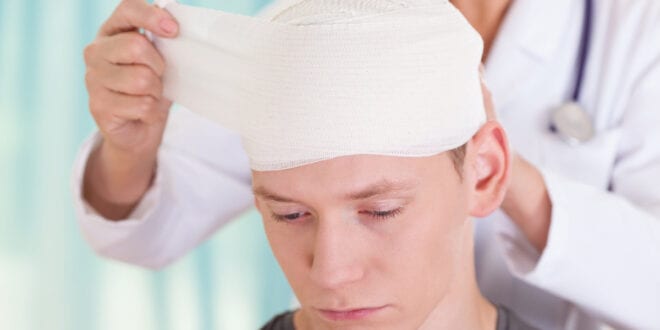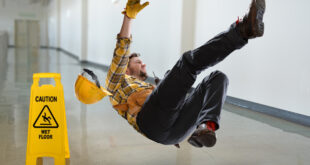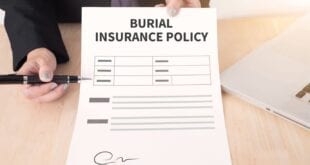Around 2.5 million people suffer a traumatic brain injury every year, and concussions are one of the types of TBI that are most common.
We often hear about the effects of TBI and concussions in younger people, such as youth and young adults playing sports, but what about older people?
For older people who sustain a head injury, the outcomes can be more severe. Head injuries due to falls are a common cause of hospitalization and death in people 65 and older. The CDC estimated that more than 25,000 adults over the age of 65 died in 2013 because of a fall. Many of those deaths were due to head injuries.
Older adults are the fastest-growing group for TBI in the U.S.
Men are more likely than women to sustain an injury to the head, and in around 50% of cases, alcohol is involved.
The following are some things to know about seniors and head injuries.
Brain Shrinkage and Brain Injury
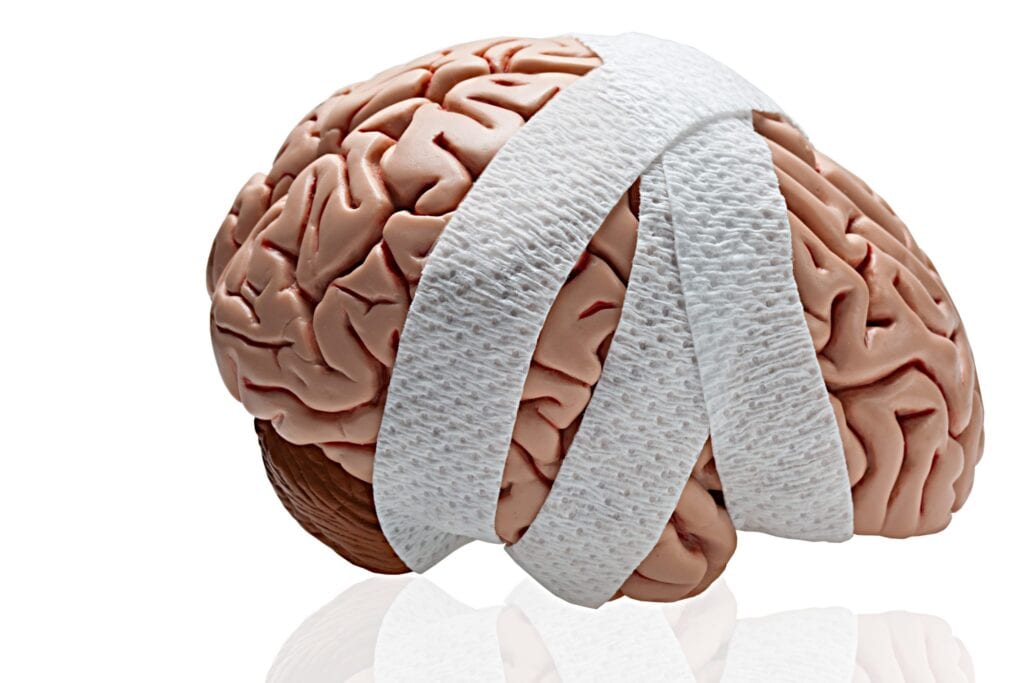
It’s somewhat common for people in their 70s and upwards to fall. As we get older, our risk for falling goes up for various reasons such as the side effects of medicines, problems with the feet like neuropathy and vision problems.
Something else that happens when we get older is that our brain and bodies shrink.
When your brain shrinks due to aging, there’s more space between it and your skull. The blood vessels connecting your brain to your skull shrink simultaneously, and they get thinner, which makes you more susceptible to damage.
It’s a natural process, but if you fall when you’re older, it can cause a subdural hematoma, which is a bruise in the brain. If you’re taking blood thinners or anti-inflammatory medications, these could increase the severity of a blood leak.
Symptoms of TBI In Older People
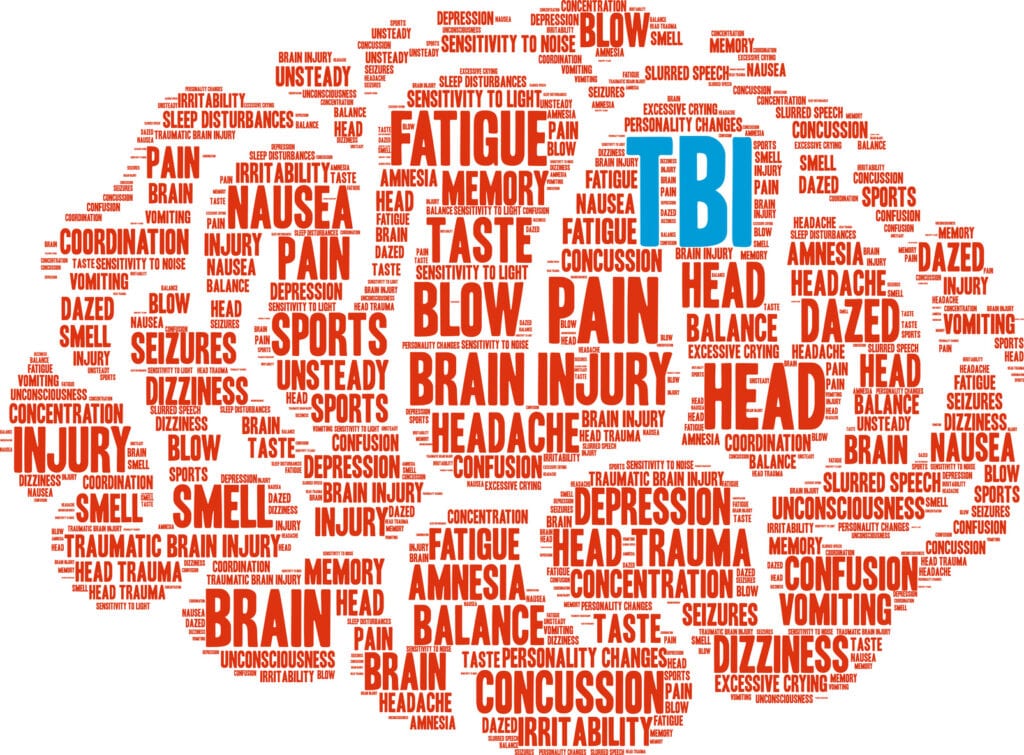
There are the typical concussion symptoms that can occur when an older person gets a brain injury, such as sensitivity to light, nausea, and headache.
In older adults, other symptoms that can also occur include memory loss, balance problems, bladder incontinence, and confusion.
These symptoms, if they occur, can indicate brain damage. If the symptoms seem to occur suddenly when the person seemed fine just a few days ago, it could show a TBI.
It’s pretty normal for older people to have some memory loss as they get older, but with an accident or TBI, that memory loss can seem more profound or significant.
In some instances, an older person might fall and land on the backside of their body or their knees. Then they may think there’s no way they have a head injury as a result because they didn’t actually hit their head.
In reality, if there’s a force from the fall that shakes the brain, it can cause a brain injury.
Older people can also get concussions if a child were to headbutt them, or if they just hit their head seemingly mildly on something like a cabinet.
TBI Treatment

Everyone who believes they have a head injury should speak to a medical professional, but this is especially true for older adults. Older adults need the right treatment in a timely way to avoid furthering injury themselves or more functional declines.
A doctor may take different routes for treating a head injury. If it’s mild, a doctor might want to admit you to the hospital briefly for observation. During this time, your vitals will be monitored and you’ll be periodically checked for certain symptoms.
However, if the head injury is more severe, and depending on its location and the type of injury, intensive care monitoring could be needed. Sometimes surgery may be required to drain a subdural hematoma, to treat a brain hemorrhage, or to repair a skull fracture.
When a doctor is diagnosing a head injury, they’ll usually ask about the circumstances of the injury and they’ll assess the patient’s confusion or level of consciousness. They’ll also probably do a neurological exam to assess thinking and memory, balance, touch, and hearing. Blood thinners like Coumadin can increase the risk of complications from a head injury, so you should tell your doctor about any medicines you’re on.
The diagnosis could also involve a CT to look at the brain.
Dementia and TBI

There has been researching over the past few decades showing links between TBI, whether moderate or severe, and an increased risk of developing dementia or Alzheimer’s. This can happen years after someone sustains the original injury.
There’s not any current evidence suggesting one mild TBI would increase dementia risk, but repeated mild TBI could.
Preventing Injuries

Since head injuries can be so damaging in older adults, prevention is the best course of action.
Reducing fall risks can help a lot.
One way to reduce your risk of being injured or falling when you’re an older adult is staying physically fit and active. It’s important not just to get cardio exercise, but also to maintain a strength training routine because that helps you keep your balance.
There are fall prevention checklists you can follow to fix hazards in your home.
For example, removing walkway clutter and throw rugs can help, as can ensuring all areas of a home are well-lit. Make sure all of your medicines are clearly labeled and you know what to take, when, and how much to take.
Talk to your doctor about all medicines you take at any given time, to make sure you’re not combining medicines in a way that could increase side effects.
Along with falls, car accidents are also a common cause of TBI.
Reduce your risk by being a careful, defensive driver, wearing your seatbelt, and keeping your car well-maintained.
If you feel like your driving abilities could be declining, ask a loved one or friend to drive you places.
A head injury is never a good situation regardless of your age, but older adults are more at risk mostly because of falls, and they may also sustain more serious injuries.
 Imagup General Magazine 2024
Imagup General Magazine 2024
